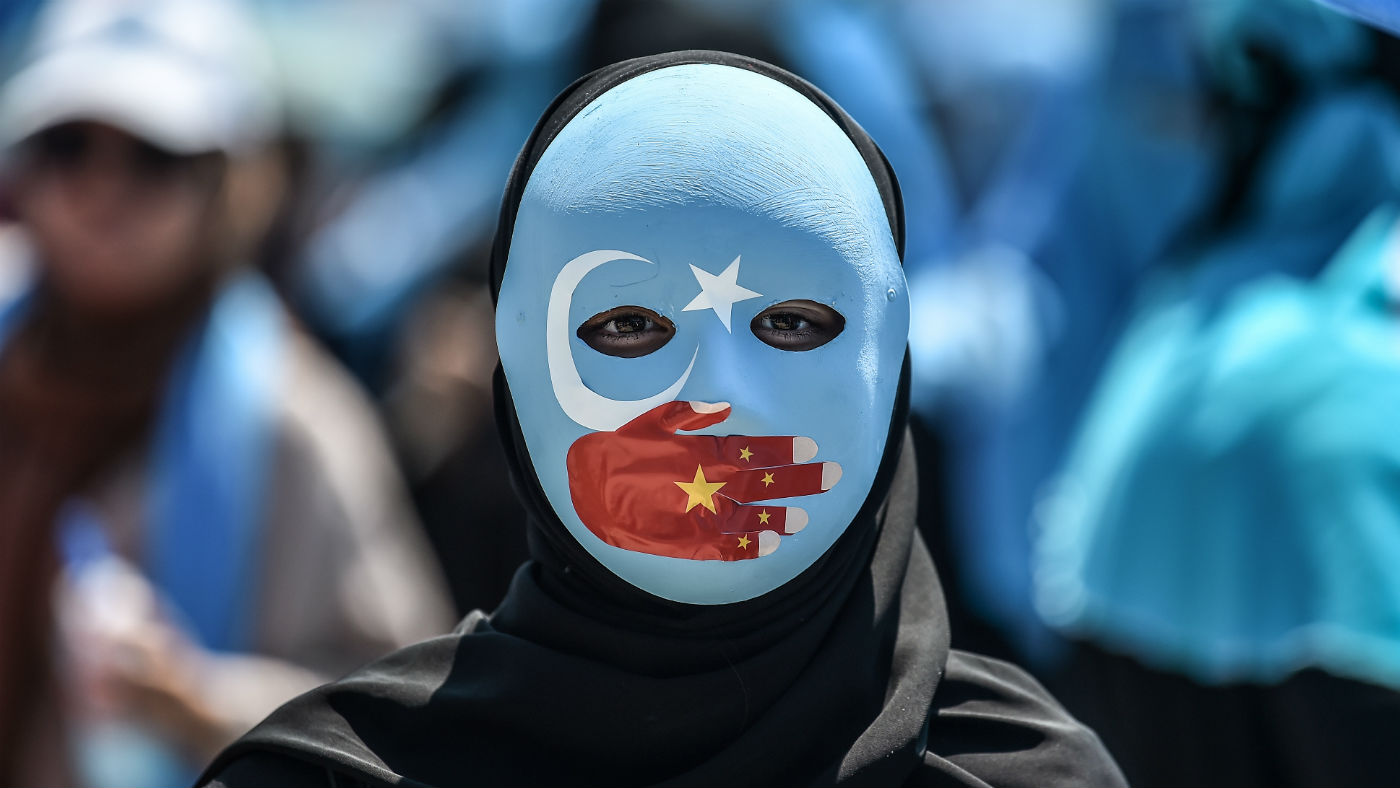ICC rules out investigation into China’s forced detention of Uighurs
Prosecutors’ decision is blow to activists who hoped to use international law to highlight persecution of the Muslim minority

A free daily email with the biggest news stories of the day – and the best features from TheWeek.com
You are now subscribed
Your newsletter sign-up was successful
The International Criminal Court (ICC) has decided against investigating China’s mass detention of the country’s Uighur population despite exiled Muslims providing evidence of the crackdown.
Prosecutors in The Hague said “they would not, for the moment, investigate allegations that China had committed genocide and crimes against humanity” because “the alleged offences took place in China, which is not a party to the court”, The New York Times (NYT) reports.
The ICC’s chief prosecutor, Fatou Bensouda, emphasises this reason in a newly published report that states the claimed abuses “have been committed solely by nationals of China within the territory of China”.
The Week
Escape your echo chamber. Get the facts behind the news, plus analysis from multiple perspectives.

Sign up for The Week's Free Newsletters
From our morning news briefing to a weekly Good News Newsletter, get the best of The Week delivered directly to your inbox.
From our morning news briefing to a weekly Good News Newsletter, get the best of The Week delivered directly to your inbox.
The decision is a blow to activists who accuse the Beijing regime of carrying out a campaign of torture, forced sterilisation and mass surveillance against the Muslim minority.
More than a million Uighurs are being held in vast indoctrination camps in the autonomous region of Xinjiang, in western China.
Beijing insists the camps are job training centres aimed at countering religious extremism and terrorism. However, the NYT points to the “preponderance of contradictory evidence”.
Despite this week’s legal setback, lawyers representing the Uighur groups say they are hopeful that the ICC will eventually agree to open an investigation after considering new evidence.
A free daily email with the biggest news stories of the day – and the best features from TheWeek.com
“The prosecutor needs further and concrete evidence from Cambodia and Tajikistan to establish jurisdiction, and we will be providing that early in the year,” said Rodney Dixon, the lead lawyer in the case.
Campaigners are also calling on Western retailers to stop selling fabric from Xinjiang, after a BBC investigation found that hundreds of thousands of Uighurs are being forced to pick cotton or work in textile factories linked to detention camps.
Chas Newkey-Burden has been part of The Week Digital team for more than a decade and a journalist for 25 years, starting out on the irreverent football weekly 90 Minutes, before moving to lifestyle magazines Loaded and Attitude. He was a columnist for The Big Issue and landed a world exclusive with David Beckham that became the weekly magazine’s bestselling issue. He now writes regularly for The Guardian, The Telegraph, The Independent, Metro, FourFourTwo and the i new site. He is also the author of a number of non-fiction books.
-
 Political cartoons for February 19
Political cartoons for February 19Cartoons Thursday’s political cartoons include a suspicious package, a piece of the cake, and more
-
 The Gallivant: style and charm steps from Camber Sands
The Gallivant: style and charm steps from Camber SandsThe Week Recommends Nestled behind the dunes, this luxury hotel is a great place to hunker down and get cosy
-
 The President’s Cake: ‘sweet tragedy’ about a little girl on a baking mission in Iraq
The President’s Cake: ‘sweet tragedy’ about a little girl on a baking mission in IraqThe Week Recommends Charming debut from Hasan Hadi is filled with ‘vivid characters’
-
 Epstein files topple law CEO, roil UK government
Epstein files topple law CEO, roil UK governmentSpeed Read Peter Mandelson, Britain’s former ambassador to the US, is caught up in the scandal
-
 Iran and US prepare to meet after skirmishes
Iran and US prepare to meet after skirmishesSpeed Read The incident comes amid heightened tensions in the Middle East
-
 Israel retrieves final hostage’s body from Gaza
Israel retrieves final hostage’s body from GazaSpeed Read The 24-year-old police officer was killed during the initial Hamas attack
-
 China’s Xi targets top general in growing purge
China’s Xi targets top general in growing purgeSpeed Read Zhang Youxia is being investigated over ‘grave violations’ of the law
-
 Panama and Canada are negotiating over a crucial copper mine
Panama and Canada are negotiating over a crucial copper mineIn the Spotlight Panama is set to make a final decision on the mine this summer
-
 Why Greenland’s natural resources are nearly impossible to mine
Why Greenland’s natural resources are nearly impossible to mineThe Explainer The country’s natural landscape makes the task extremely difficult
-
 Iran cuts internet as protests escalate
Iran cuts internet as protests escalateSpeed Reada Government buildings across the country have been set on fire
-
 US nabs ‘shadow’ tanker claimed by Russia
US nabs ‘shadow’ tanker claimed by RussiaSpeed Read The ship was one of two vessels seized by the US military